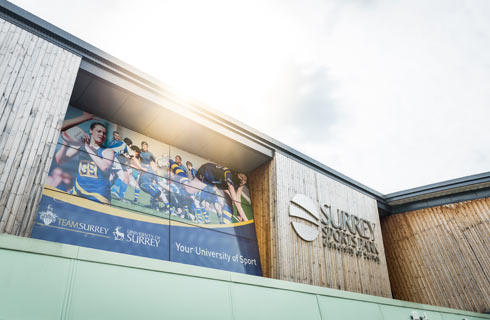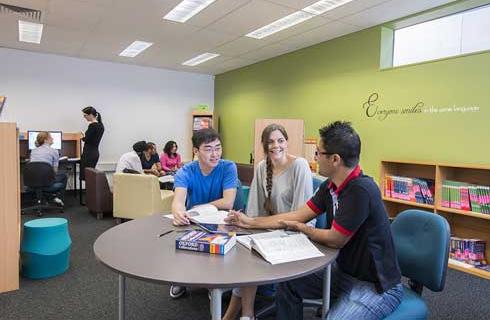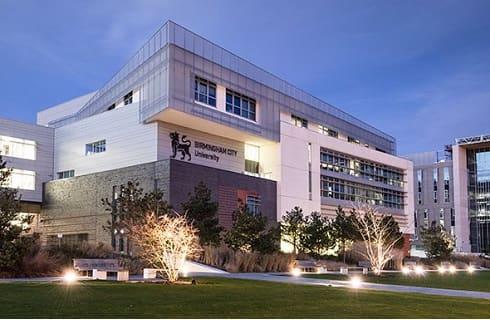微生物学学士学位(荣誉学位)
BSc (Hons) Microbiology

学历文凭
Bachelor Degree with Honours

专业院系
FHMS - School of Biosciences and Medicine

开学时间

课程时长

课程学费

国际学生入学条件
IDP—雅思考试联合主办方

雅思考试总分
- 雅思总分:
- 托福网考总分:
- 托福笔试总分:
- 其他语言考试:
CRICOS代码: C500
申请截止日期: 请与IDP联系 以获取详细信息。
课程简介
What you will study: In your first year, you’ll be introduced to the microbial world. You’ll study topics that are fundamental to microbiology, including bacteriology, biochemistry and cell biology, as well as learning important hands-on lab techniques. During your second year, you’ll get the option to study modules including Cellular Microbiology and Virology, Food Microbiology, Introduction to Immunology, and Pathology and Medicine. On these modules, you’ll explore topics such as adaptive immune response and cellular injury, as well as the characteristics of the major groups of bacteria, protozoa and viruses. In your final year, you’ll study biomedical microbial products and the epidemiology of infectious diseases. You can also choose to explore topics such as advanced virology, animal infectious diseases, gene expression, clinical immunology, and pathogenesis and therapeutics of cancer. You will also complete a research project, bringing together all the practical, analytical and presentation skills you’ve developed. Professional recognitionBSc (Hons) - Royal Society of Biology Accredited by the Royal Society of Biology for the purpose of meeting, in part, the academic and experience requirement of membership and Chartered Biologist (CBiol). Foundation yearIf you don’t meet our entry requirements, you might still be able to apply for this degree with a Biosciences Foundation Year. This is an extra year of study to develop your skills and make it easier for you to get started at university. On successful completion of your foundation year, you’ll be ready to progress to the first year of your degree. To see what modules you’ll be studying, refer to the foundation tab in the 'Course structure' section.
相关申请
 预科
预科 奖学金
奖学金 实习机会
实习机会 在校学习
在校学习 跨境学习
跨境学习 校园授课-线上开始
校园授课-线上开始 在线/远程学习
在线/远程学习
开学时间&学费
学费信息仅供参考,请与IDP联系以获取详细信息
| 开学时间 | 时长 | 学费 | 地点 |
|---|
学校排名

世界排名251
数据源:
泰晤士高等教育世界大学排名
关于萨里大学

萨里大学拥有一个由15500多名学生组成的全球学生群体,其中超过五分之一的学生来自英国以外的国家和地区。萨里不仅仅是一所大学,它是一个由不同思想和人员组成的全球社区,致力于改变人生的教育和研究。 萨里大学的毕业生就业率是英国最高的大学之一。 萨里大学荣获 2022 年最佳大学职业和就业能力服务奖(全国本科生就业能力奖)该大学以世界一流的研究和创新为动力,通过与企业、政府和社区的敏捷合作对社会产生积极影响并塑造数字经济的未来。 在大学学习课程的学生将为学术界和工业界的众多职业道路做好准备。萨里大学位于繁华的吉尔福德小镇。 吉尔福德距离伦敦市中心仅 35 分钟火车车程。 该大学风景如画的校园拥有一系列出色的学习设施,包括每个学院都拥有最先进的实验室和模拟设备。 大学提供全面的学生服务,包括为国际学生提供的专门支持服务。 萨里拥有各种现代化的住宿设施,国际学生的舒适度和整体体验是萨里大学的首要任务。萨里大学的三个学部提供许多本科和研究生课程,所有课程都具有灵活性,因此学生可以根据专业兴趣和个人目标打造他们个性化的学位。 每个萨里大学的学生在整个学习过程中都受益于高效的职业支持和指导,此外还有大量在核心学位途径之外发展专业技能的机会。
本校相关课程

兽医生物科学理学士(荣誉学位)
学历文凭
Bachelor Degree with Honours
开学日期
课程费用总额


国际旅游管理理学学士(荣誉学位)
学历文凭
Bachelor Degree with Honours
开学日期
课程费用总额


社会学理学士学位(荣誉学位)-专业培训
学历文凭
Bachelor Degree with Honours
开学日期
课程费用总额


社会学理学学士(荣誉学位)
学历文凭
Bachelor Degree with Honours
开学日期
课程费用总额


心理学理学士(荣誉学位)
学历文凭
Bachelor Degree with Honours
开学日期
课程费用总额


国际关系理学士学位(荣誉学位)
学历文凭
Bachelor Degree with Honours
开学日期
课程费用总额

其他相关课程

生物医学学士
 皇家墨尔本理工大学
皇家墨尔本理工大学学历文凭
Bachelor Degree
开学日期
课程费用总额


哲学硕士-生物医学和生物化学
 澳大利亚国立大学
澳大利亚国立大学学历文凭
Masters Degree (Research)
开学日期
课程费用总额


生物医学学士
 詹姆斯·库克大学
詹姆斯·库克大学泰晤士高等教育世界大学排名:361
学历文凭
Bachelor Degree
开学日期
课程费用总额


理学学士(海洋生物学)
 弗林德斯大学
弗林德斯大学泰晤士高等教育世界大学排名:307
学历文凭
Bachelor Degree
开学日期
课程费用总额


理学学士-海洋生物学(荣誉学位)
 弗林德斯大学
弗林德斯大学泰晤士高等教育世界大学排名:307
学历文凭
Bachelor Degree with Honours
开学日期
课程费用总额


城市与环境规划学士/海洋生物学理学学士
 格里菲斯大学
格里菲斯大学泰晤士高等教育世界大学排名:258
学历文凭
Dual Degree
开学日期
02 March 2026
课程费用总额
AUD 167,500










 英国
英国